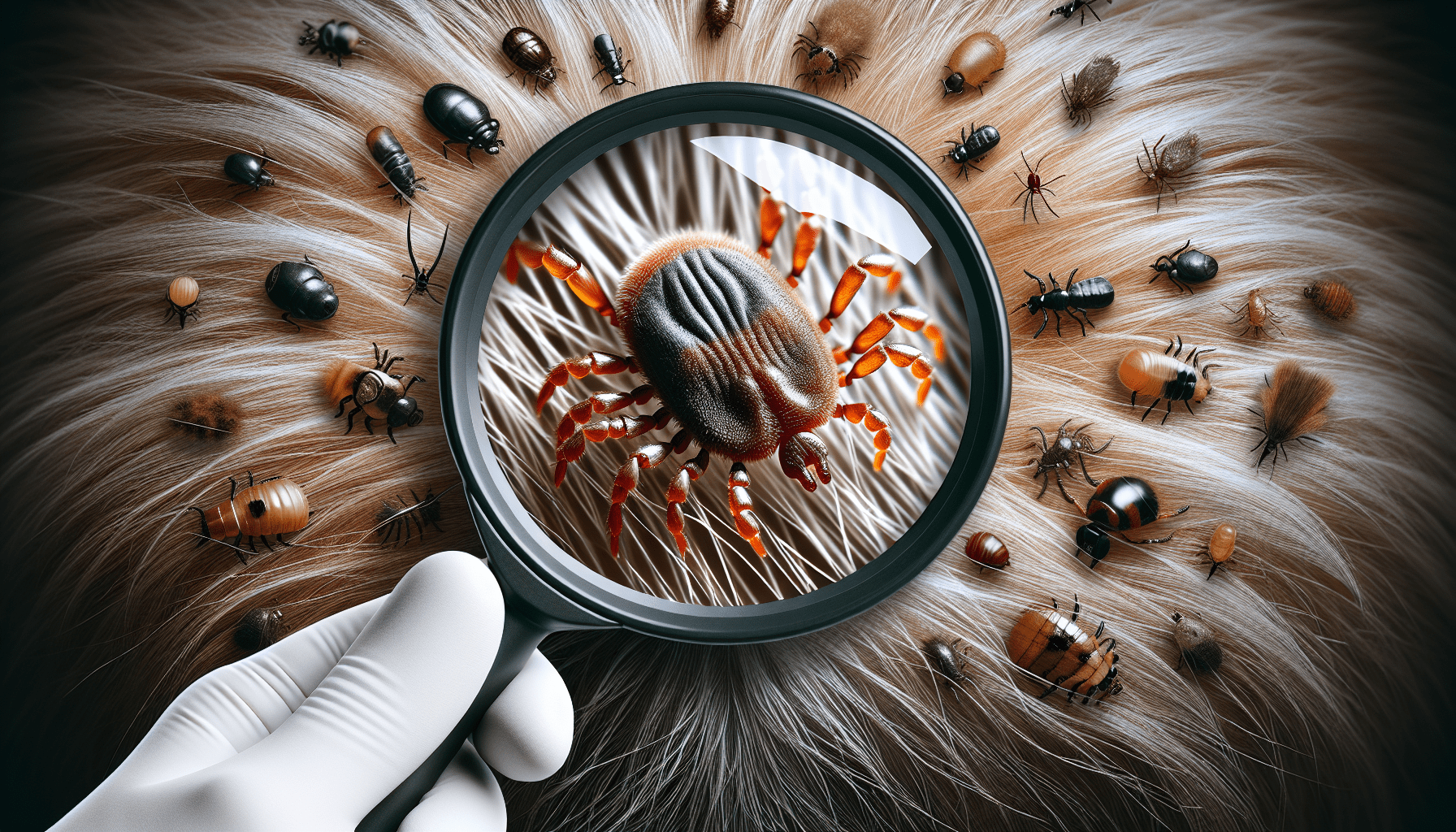Welcome, dog owners! In this article, we will discuss common parasites that can affect our beloved furry friends and how to prevent and treat them. From fleas and ticks to heartworms and intestinal worms, it’s important to be aware of the potential risks and take proactive measures to keep your pup healthy and happy. Let’s dive into the world of common parasites in dogs and learn how to protect them from these pesky intruders. Have you ever wondered about the common parasites that can affect your furry friend? It’s important to arm yourself with knowledge to protect your dog from these pesky critters. In this article, we will discuss the most common parasites in dogs, how to prevent them, and the best treatment options available. Let’s dive in!

Understanding Common Parasites in Dogs
Parasites are organisms that live on or inside your dog, feeding off their blood and nutrients. They can cause a range of health issues, from mild irritation to serious diseases. It’s essential to be aware of the most common parasites that can affect your dog.
Fleas
Fleas are tiny, wingless insects that thrive in warm, humid climates. They can cause itching, skin irritation, and allergic reactions in dogs. Fleas can also transmit tapeworms and other diseases.
Ticks
Ticks are external parasites that attach themselves to your dog’s skin and feed off their blood. They can transmit diseases such as Lyme disease, Rocky Mountain spotted fever, and ehrlichiosis. It’s important to regularly check your dog for ticks, especially after outdoor activities.
Heartworm
Heartworm is a serious and potentially fatal parasitic disease transmitted by mosquitoes. The parasitic worms can live in your dog’s heart, lungs, and blood vessels, causing coughing, lethargy, and heart failure. Prevention is key when it comes to heartworm, as treatment can be challenging and expensive.
Roundworms
Roundworms are intestinal parasites that can be transmitted to dogs through contaminated soil, feces, or infected prey. They can cause weight loss, vomiting, diarrhea, and a potbelly appearance in dogs. Puppies are especially vulnerable to roundworm infections.
Preventing Parasites in Dogs
Prevention is always better than cure when it comes to parasites in dogs. Here are some effective ways to protect your furry friend from these pesky invaders.
Regular Veterinary check-ups
Regular check-ups with your veterinarian are essential for monitoring your dog’s health and detecting any early signs of parasite infestations. Your vet can recommend the best preventive measures based on your dog’s age, lifestyle, and risk factors.
Parasite Preventatives
There are various parasite preventatives available in the form of topical treatments, oral medications, and collars. These preventatives can protect your dog from fleas, ticks, heartworm, and intestinal parasites. Consult with your veterinarian to determine the most suitable preventive for your furry friend.
Environmental Control
Keeping your dog’s living environment clean and sanitized can help prevent parasite infestations. Regularly clean and vacuum your home, wash your dog’s bedding, and eliminate standing water to reduce the risk of fleas, ticks, and mosquitoes.
Regular Grooming and Inspection
Regular grooming and inspection of your dog’s skin and coat can help detect any signs of fleas, ticks, or skin irritations early on. Pay special attention to areas like the ears, armpits, and groin where parasites tend to thrive.
Treating Parasites in Dogs
Despite your best efforts, your dog may still come into contact with parasites. It’s essential to know how to identify the signs of infestation and choose the right treatment option for your furry friend.
Flea Treatment
If you suspect that your dog has fleas, it’s crucial to take immediate action to eliminate these pesky pests. Use flea shampoos, topical treatments, or oral medications recommended by your veterinarian to get rid of fleas on your dog and in your home.
Tick Removal
If you find a tick on your dog, it’s important to remove it carefully to prevent the transmission of diseases. Use fine-tipped tweezers to grasp the tick as close to the skin as possible and pull it out gently and steadily. Monitor your dog for any signs of tick-borne illnesses after removal.
Heartworm Treatment
Treatment for heartworm disease can be complex and may require multiple medications, hospitalization, and strict rest. Your veterinarian will create a treatment plan based on the severity of the infection. Prevention is key when it comes to heartworm, as treatment can be challenging and expensive.
Deworming
Treating intestinal parasites like roundworms, hookworms, and tapeworms usually involves deworming medications prescribed by your veterinarian. Follow the dosage and administration instructions carefully to ensure the parasites are eliminated effectively.
Conclusion
In conclusion, being aware of the common parasites that can affect your dog is crucial for their health and well-being. By understanding how to prevent and treat these parasites, you can provide the best care for your furry friend and ensure they live a long and healthy life. Remember to consult with your veterinarian for personalized recommendations and guidance on parasite prevention and treatment. Stay vigilant, proactive, and proactive in protecting your dog from these pesky invaders.


